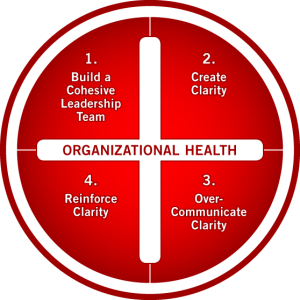Just One Fix
This is the first post in the series “Medication, Meditation and Other Analogies“. In this series, I explore analogies between concepts in individual therapy and their counterparts in Organisational Therapy.
Drugs
I used to love the music of the band “Ministry”. For that matter, I still do. One of their finer tracks is named “Just One Fix”.
The lyrics hint at the band’s anarchistic perspective, alluding to the destructive impact that drugs have on both the individual and society. Overtly, the lyrics focus on the junkie’s – or is it society’s? – insatiable search for “just one fix”. As if just one fix is going to be all that’s ever needed.
Some time ago I was musing on the idea of “medicating”, or using pharmacotherapy on, organisations. Now, medication of individuals seems controversial amongst the psychotherapy community, and indeed within society at large.
And at the time, I saw little relevance in pharmacotherapy for treating organisations – after all organisations have no biology as such, no organic brain, no corpus. But I was thinking too narrowly. Upon further reflection, if we regard neurons of the brain as analogous to the individual people within an organisation, and look at the way drugs work on modifying the chemistry (neurotransmitters) of connections between neurons in the brain, we can see an analogy emerging.
What do organisations use to modify (e.g. enhance) the connections between their people? Setting aside the whimsical answer of “meetings”, I posit that the use of information technology, and its products, in organisations, is a fair analogy to the use of drugs in individuals.
Aside: Thirty years ago, maybe the inter-office memo system would have been a relevant analogy.
Information Technology, Drugs, Ambiguities
I like this emerging analogy, not least because of the ambiguities inherent in the idea of “drug as solution” – ambiguities I also see as present in the idea of “information technology as solution”.
We may believe that drugs prescribed by medical professionals offer health benefits to the patient. Or not. We may believe that “IT Solutions” prescribed by IT professionals offer, similarly, health benefits to the organisation. Or not. In any case, the ethical and practical dilemmas seem to me to bear an uncanny resemblance.
“Big IT” has as much of a vested interest in seeing IT solutions prescribed as treatment in organisations, as does “Big Pharma” in pharmacotherapy. And the resulting distortions in treatment regimes seems to have resemblances, too.
Many folks self-medicate, whether with legal drugs or illegal (controlled) ones. Many organisations self-medicate on information technology likewise, although many organisations seem to use IT suppliers more like pharmacists than psychotherapists. Maybe there should be a classification system for IT solutions, i.e. over-the-counter, prescription-only, and various classes of “controlled”? Myself, I’d put most of Microsoft’s “solutions” in the controlled category (for example, Sharepoint – Class B).
And information technology can be habit-forming much as drug treatments. Many drugs – even those prescription drugs taken under professional supervision – can be habit-forming, if not downright addictive.
Information Technology as Therapy
There may be psychiatric patients for whom the benefits of pharmacotherapeutic treatment outweigh the costs (both financial and in term of e.g. side-effects). There may be organisations for whom the benefits of information technology “solutions” outweigh the costs, too.
If we regard IT as a form of organisational therapy – and so often the claims are like “better communication within your organisation”, “better relationships with your customers”, and so on – then maybe that gives us another way to look as the use of IT within organisations. And another potential kind of therapy in our therapist’s bag.
Maybe, too, we can recognise that information technology, however well produced, is but one form of therapy, and not always the best one for a given patient or situation.
– Bob
Further Reading
Legal Classificaion of Medicines (UK) – Royal Pharmaceutical Society website



